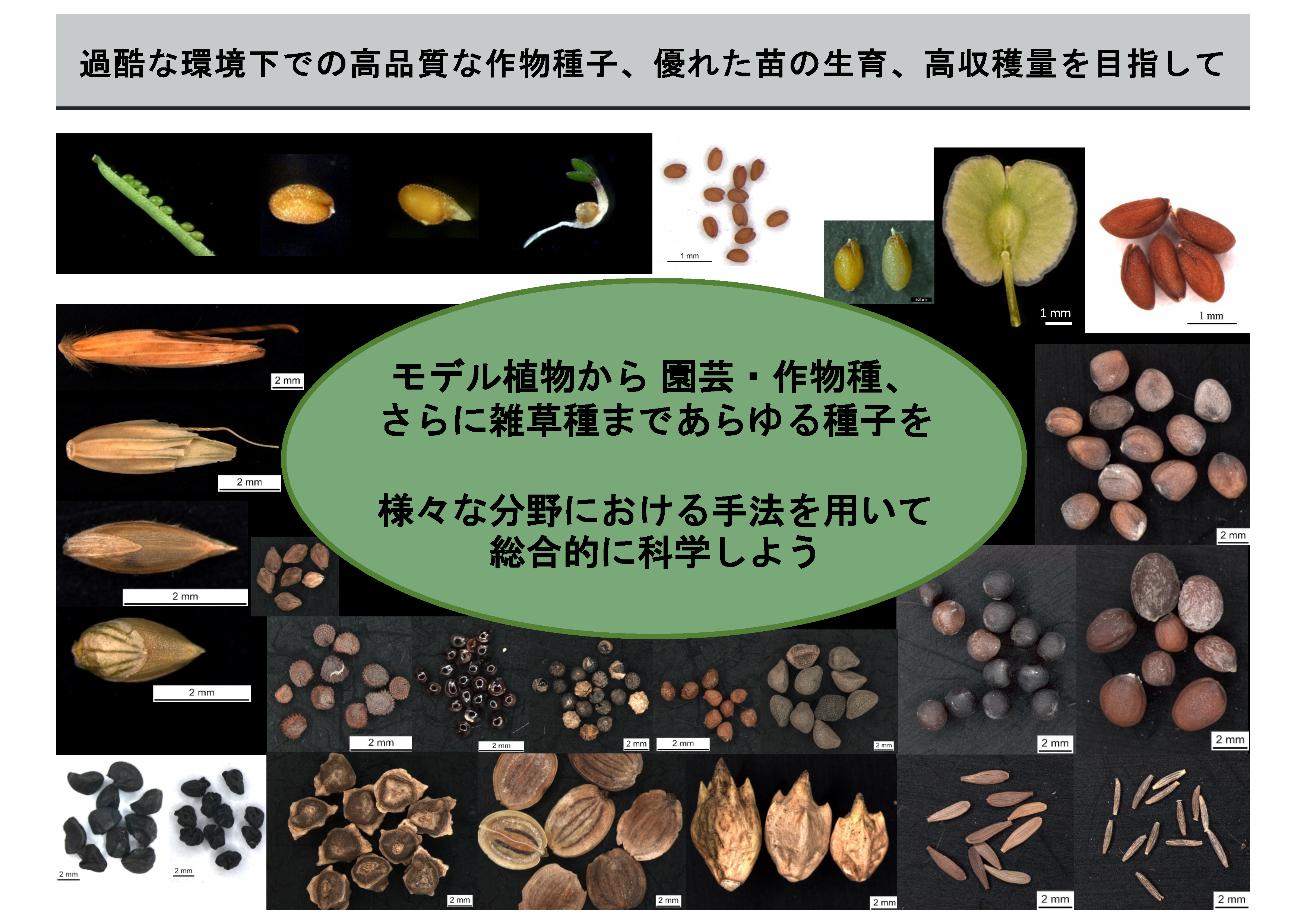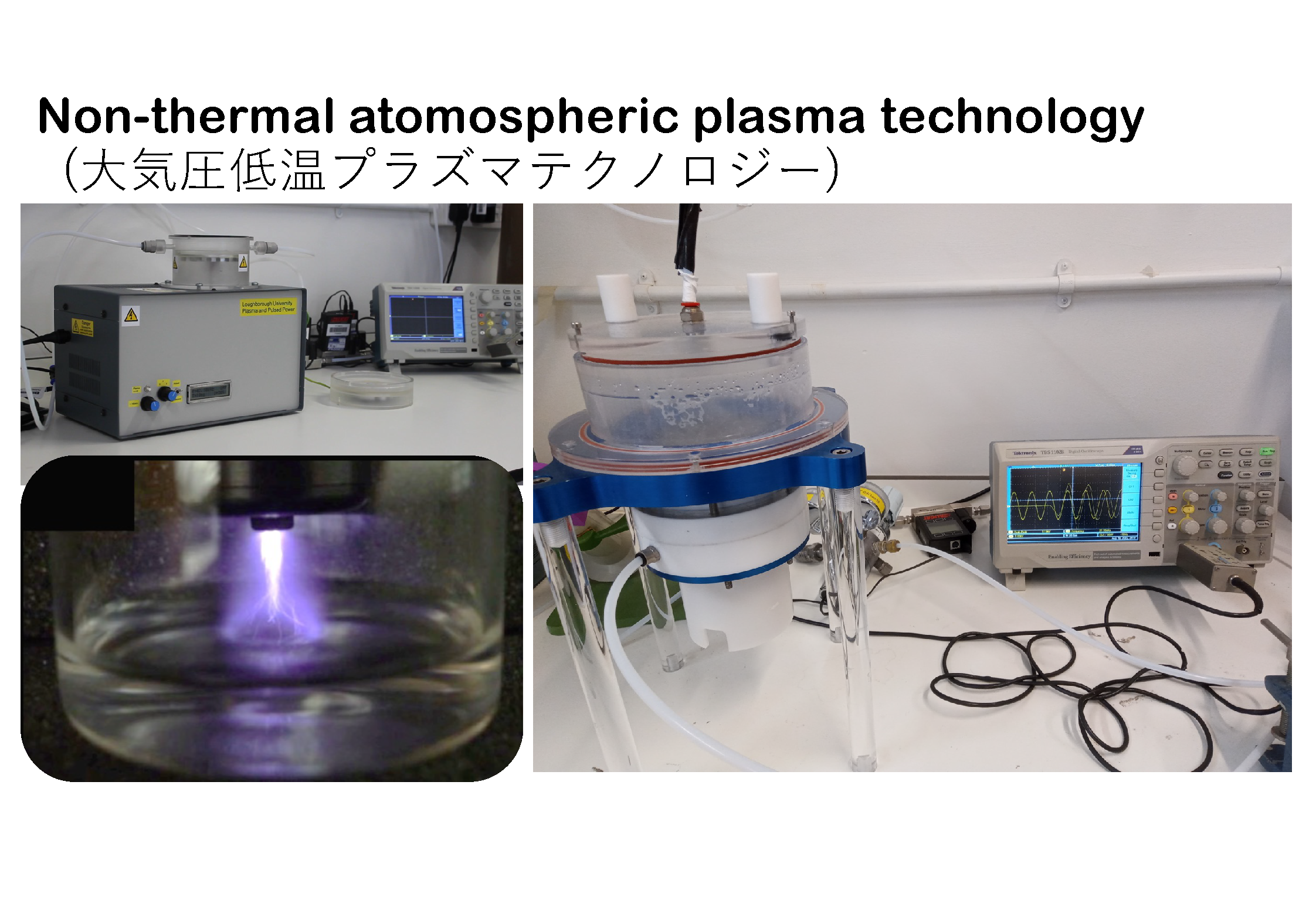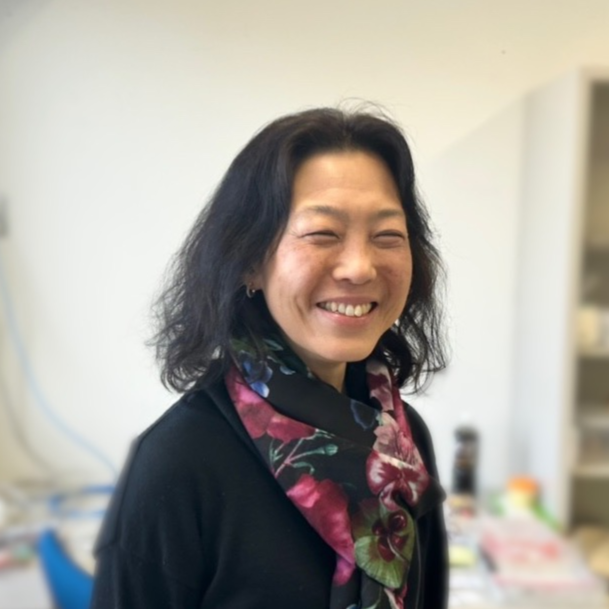Nakabayashi Kazumi Associate Professor
My DreamTo characterise the physiological and molecular regulation in seed dormancy and germination
ThemeCharacterisation of physiological and molecular mechanisms controlling seed dormancy and germination in crops and weed species, and its utilisation in agriculture
Field
Plant physiology, Plant molecular biology, Biotechnology
Keyword
Seed dormancy/germination, Plant hormone, Weed management, Environmental response, Gas-plasma technology
Instructable research topic for doctoral thesis
- 作物種の種子休眠と発芽の生理学的解析
- 雑草種子の環境生理学
- 雑草種における農薬の効果的な使用方法の模索
- 雑草防除におけるアレロパシーの利用
- ガスプラズマ処理方法の改良と種子の生理的変化の解析
Message
「わぁ、これおもしろい!」「これどうなってるの?」という疑問に答えを得るために皆さんと一緒にあれこれ知恵を絞って実験していければいいなと思っています。
| Academic degree | PhD(Science) |
| Self introduction |
I’m from Osaka, but now I’d lived longer in Europe (Cologne and London) than Osaka. I enjoyed classic concerts and opera a lot in Europe, and now I’m looking forward to exploring great foods and hot springs in Hokkaido! |
| Room address | General Research Building 1 |
| Room number | E3202-3 |
| Mail address | knakab  obihiro.ac.jp
obihiro.ac.jp |
Belongs
Research Department/Department of Agro-environmental Science/Division of Plant Production Science/Section of Plant Production ScienceFaculty (Unit)Plant Production Program
Grad school (Course)Doctoral and Master's Program of Animal Science and Agriculture/Plant Production Science
Introduction
- Seed dormancy and germination
Seed germination is the very important first step in agriculture and has long been a target of breeding. Many of the current cultivars and varieties exhibit shallow seed dormancy and those seeds germinate easily, while there are also negative impacts when dormancy is too shallow. We have been characterizing genes which regulate depth of seed dormancy using model plant species, however, the findings in model species are not always true in other crop species. Therefore, we have been recently trying to identify some specific and conserved mechanisms utilizing comparative approaches in various crop species. - Weed management
It is important to improve crop species in order to respond climate change, and in addition to that, it is also extremely relevant to reduce competition with weeds for better yields. Weed seeds also germinate, and therefore, by analysing weed seed germination we are exploring ways to prevent the overlapping germination period between crops and weeds and how to control them without relying too much pesticides. - Gas-plasma technology
The above mentioned are studies of plant/seed responses to environment in seed dormancy and germination. We also employ a completely different approach and try to manipulate the physiological responses of seeds through exogenous treatments. It has been reported that atmospheric low-temperature plasma, which has recently been attracting attention in various areas, has the potential to promote seed germination or seedling growth in certain crop species. We have developed and patented the method to use the gas-plasma treatment for post-harvest seed technology when I worked at Royal Holloway University in London. However, what and how plants/seeds are changed have not been fully understood, and therefore, plenty of problems need to be sorted for its practical use. We are currently testing various species to identify responsive seeds and trying to analyse their physiological and molecular changes.


List of current research topics
- Physiological and molecular characterization of seed germination in response to different temperature in Apiaceae species (carrot, celery, parsnip etc.)
- Dormancy and germination regulation of various weed seeds in response to environment
- Effects of seed and soil microbes on seed germination and longevity
- Effects of gas-plasma treatment on breaking seed Dormancy and promotion of seed germination
| Affiliated academic society | International society for seed science |
| Editor | Frontiers in Plant Science: 2022- |
| Editorial Board |
|
| Academic background | 1995年 M.A. Dept. Biochemical regulation,Nagoya University 1999年 Ph.D. Dept. Biological Sciences,University of Tokyo 1999年 Post-doctoral reseacher, Dept. Biological Sciences,Univ. of Tokyo 2001年 Researcher, Plant Science Center, RIKEN 2005年 Researcher, Max Planck Institute for Plant Breeding Research 2015年 Research associate,Royal Holloway University of London 2024年- Present post |





